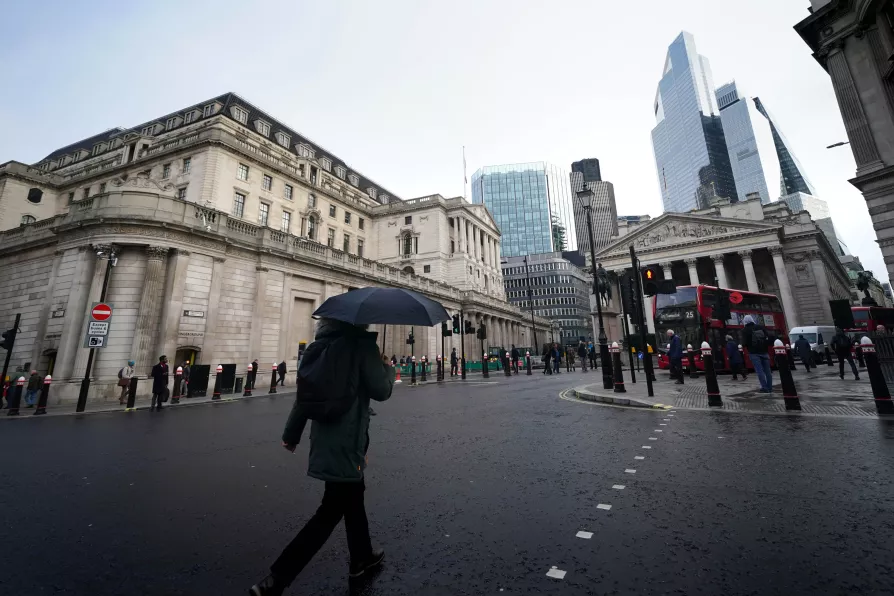
 The Bank of England in the City of London
The Bank of England in the City of London
BRITAIN faces the second highest rate of inflation in the G7 next year due to soaring food prices, a new OECD report warned today.
Chancellor Rachel Reeves’s relatively “tighter fiscal stance” is expected to lead to higher taxes and spending cuts that will weigh on the economy, with growth set to ease sharply from 1.4 per cent this year to 1 per cent in 2026.
Economists from the influential organisation predicted inflation to reach 3.5 per cent this year, warning that Britain was among the economies suffering from “mounting food price pressures.”
The inflation rate is 0.4 percentage points higher than its previous forecast and far above the Bank of England’s target of 2.7 per cent in 2026.
It comes ahead of the government’s autumn budget statement in November, with the Chancellor under pressure to further raise taxes to help balance the books.
The OECD’s chief economist Alvaro Pereira said that it was “certainly not our working assumption” that Britain will experience stagflation — referring to a combination of stagnant economic growth and high inflation.
The organisation also warned that growth in the world’s economy will noticeably weaken over the rest of the year as higher US tariffs take effect, dampening global trade and investment.
Ms Reeves said that the figures “confirm that the British economy is stronger than forecast — it has been the fastest growing of any G7 economy in the first half of the year.”
She added: “But I know there is more to do to build an economy that works for working people — and rewards working people. That is what I’m determined we deliver through our plan for change.”
Today Labour peer Lord Prem Sikka said: “Real average wage hardly moved since 2008. Profiteering is the main cause.
“Start with controlling price of energy, water, rents. Even better nationalise energy and water, build social housing.”
SNP’s economy spokesperson Dave Doogan MP said: “In recent weeks it’s been blindingly obvious that Keir Starmer has lost control of his government — but the cost of that chaos is a divided and distracted Labour Party that has completely lost control of the cost-of-living crisis.”
The economy grew by 0.7 per cent over the first three months of the year and by 0.3 per cent over the second quarter, official figures show.

More than 100 protesters expected to hold signs opposing Palestine Action ban outside the venue in Liverpool













